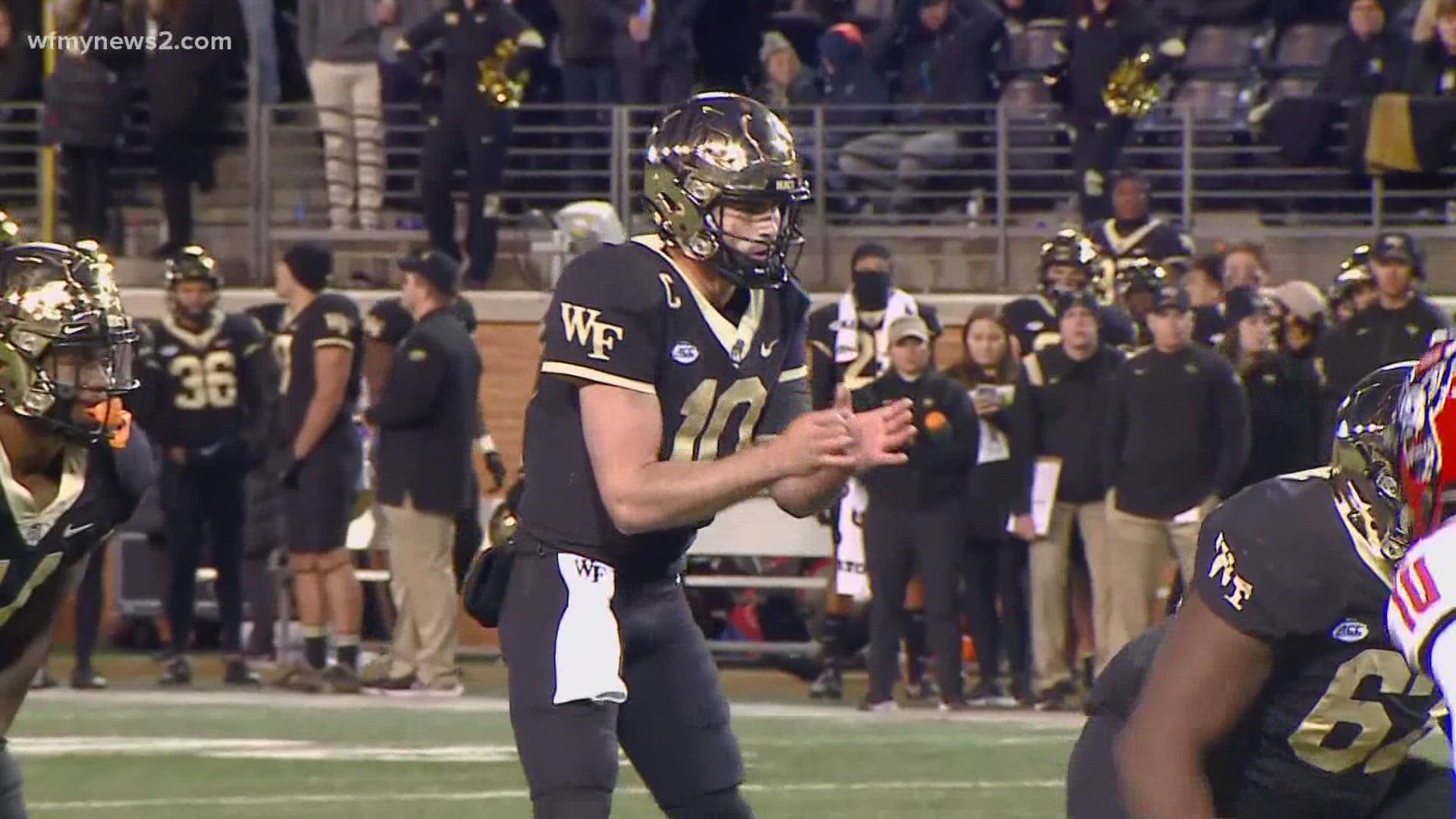WINSTON-SALEM, N.C. — Concussion research is a hot topic these days.
People are calling for more research on concussions and CTE in correlation with sports. Especially after the CTE diagnosis of former NFL player, Phillip Adams, who went on a killing rampage in April.
Some of that research is being done in our own backyard at Wake Forest School of Medicine. They have several projects looking into the biomechanics of a concussion with a wide range of sports as well as the long-term effects on the brain.
Dr. Christopher Miles is a sports medicine physician at Atrium Health Wake Forest Baptist, associate professor of family and community medicine at Wake Forest School of Medicine and also the head team physician at Wake Forest University.
He said the case involving Adams is very unique.
"CTE is a condition where proteins are deposited in the brain in certain areas, and most commonly in the temporal lobe of the brain, but in this individual, they had frontal lobe deposits of this protein," Dr. Miles said.
Dr. Miles said while this case is concerning, stories like this should not be a reason not to let your child play football or other sports.
He said one concussion doesn't expose you to CTE. Multiple concussions can be a cause for concern and doctors may advise an athlete to quit playing a sport altogether to be safe.
However, there is still a lot unknown about concussions and CTE. Dr. Miles said they don't know if genetics or even substance abuse could be a factor in these rare CTE cases.
He said Wake Forest School of Medicine is looking for adolescent athletes who have had a concussion to participate in their new study to look into the long-term effects of concussions.
"Look into that as an opportunity to help further our knowledge of this condition and make sports safer for their children and children to come," Dr. Miles said.

